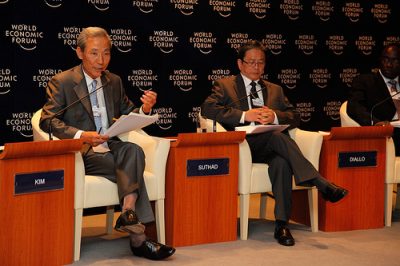But until now, only a handful have actually become law. The overwhelming majority die quietly in state legislative committees and hearings, having fulfilled their political purpose of providing their sponsors with a rhetorical pro-jobs/anti-trade platform.
Unemployment in many states is stuck at close to double the rates of 2003-05 and state budgets are subject to severe constraints. Despite the potential for longer-term government savings, this makes awarding large multi-million dollar state government outsourcing contracts politically costly in the short-term. The risk that proposed anti-outsourcing legislation will be passed into state law, or as in Ohio’s case, implemented directly through executive orders by activist governors, is currently high.
Ohio’s outsourcing ban is part of two broader alarming trade policy trends in the United States (and elsewhere).
First, it represents an obvious example of a blatant protectionist policy on which the WTO and related agreements are silent. US state governments are unconstrained by the WTO Agreement on Government Procurement (GPA), which largely covers US federal government activities. And in any case, most outsourcing destination countries like India are not even members of the agreement.
In this way, Ohio’s ban illustrates how there are plenty of ways a country can employ protectionism without violating existing global trade rules, and shows just why G20 leaders’ self-congratulatory mantra of ‘having resisted protectionism during the Great Recession’ rings increasingly hollow. Fighting protectionism effectively is a political commitment that goes beyond the mere act of enforcing existing trade rules.
Second, the outsourcing ban, designed to restrict competition principally in the IT services sector, exemplifies the puzzling political practice in the US of ‘protecting the winners’, in effect, shutting out foreign competitors in high-skilled industries such as IT services. This is despite the fact that American firms are globally dominant and hold very strong competitive positions. Another recent US federal government example of this practice is the new $2,000+ fee-hike for high-skilled H-1B/L-1 visas, designed by the US Congress to affect only a handful of large mostly Indian IT services companies operating in the US market. Such policies amount to a high-wage country ‘taxing its competitiveness’ by raising the cost of human capital and high-skilled intermediate input services. This is not a sensible way for the US to exercise sustainable leadership in the global economy.
What lessons should Asia’s low-costs services sector powerhouses, especially India, draw from this?
First, the US’ current political environment is not hospitable to new service sector trade initiatives, whether bilateral or multilateral. If Asian countries are bent on pursuing their comparative advantages in the service sector, they are best served by pursuing additional bilateral trade integration with other large developed trading partners, such as the EU, Japan or Australia/New Zealand. ‘Competitive liberalisation pressures’ might then in the future make US policy makers more receptive to service sector liberalisation.
Second, the US and other developed countries will continue to be voracious in their protection of job-rich, but increasingly tradable, services sectors. It is no coincidence that the IT services sector has been the target of most protectionist measures. It is the least regulated, most digitizable and hence by far the most tradable business service today. Were other currently more regulated high-skilled services (such as legal, medical or accounting services) to become similarly tradable across borders, a similarly fierce protectionist reaction would result.
Third, due to the inherent complexity of services integration, only a steadfast political commitment and broad-based domestic pro-free trade consensus among participants will provide the lasting basis on which to rapidly grow services sector trade among nations. Partnering with nations most able to deliver such traits must be low-cost Asian services producers’ priority.
Jacob Kirkkegaard is a research fellow at the Peterson Institute for International Economics.


In my opinion, it is too risky to outsource Government IT via off-shoring. But then again, if they can find the right people locally to handle and manage these projects then this is a viable option.